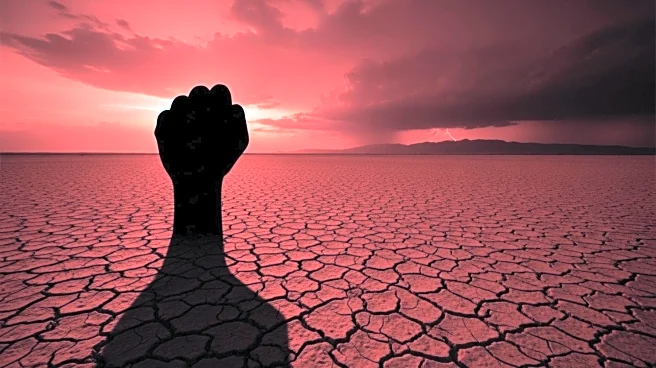What's Happening?
Iran has reportedly intensified its repressive measures following its ongoing conflict with Israel. Scholars and rights groups have highlighted a significant increase in executions and a nationwide internet blackout. The Iranian police have claimed the arrest of 21,000 individuals, a move that rights groups suggest mirrors the prelude to the 1988 prison massacres. This escalation in repression comes in the wake of Israeli strikes on Iranian targets, including the Sharan Oil depot in Tehran. The situation has drawn international attention, with concerns over human rights violations and the potential for further unrest within the country.
Why It's Important?
The intensification of repression in Iran has significant implications for regional stability and human rights. The surge in executions and mass arrests could exacerbate tensions within Iran, potentially leading to increased domestic unrest. Internationally, these actions may strain Iran's relations with other countries, particularly those advocating for human rights. The conflict with Israel adds another layer of complexity, as it could influence geopolitical dynamics in the Middle East. The situation also raises concerns about the humanitarian impact on the Iranian population, who may face increased hardships due to government crackdowns and international sanctions.
What's Next?
The international community is likely to monitor the situation closely, with potential calls for investigations into human rights abuses. Diplomatic efforts may be initiated to de-escalate tensions between Iran and Israel, aiming to prevent further conflict. Human rights organizations may increase their advocacy efforts, urging Iran to halt executions and release political prisoners. The Iranian government may face internal pressure from its citizens, potentially leading to protests or demands for reform. The outcome of these developments could significantly impact Iran's domestic and international standing.
Beyond the Headlines
The current situation in Iran highlights the broader issue of government repression and its impact on civil liberties. The use of internet blackouts as a tool for control raises questions about digital rights and freedom of expression. Additionally, the historical context of the 1988 prison massacres serves as a reminder of the long-standing challenges faced by those advocating for human rights in Iran. The international response to these events could set precedents for how similar situations are addressed in the future.










